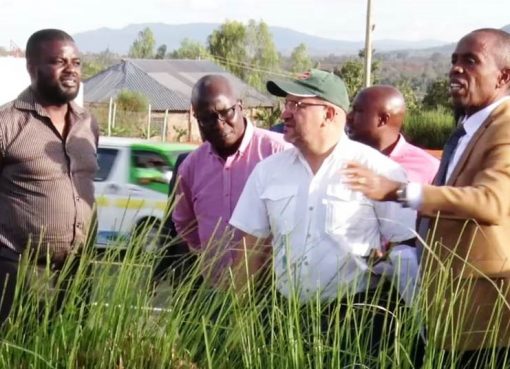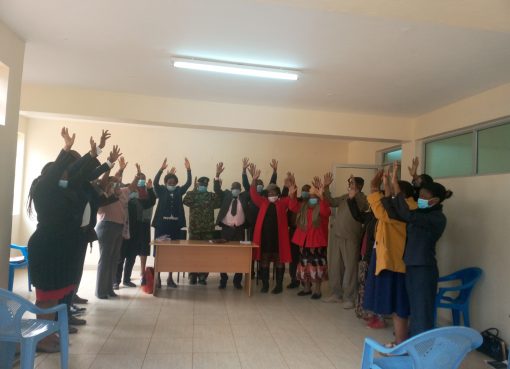Coffee farmers drawn from counties within the central region are upbeat about the new mode of payment being implemented at the Nairobi Coffee Exchange (NCE).
During sensitization forums held in various counties in the region last week, the farmers lauded the government for establishing the Direct Settlement System (DSS), which has seen payments be done in dollars at the auction.
They underscored various reforms the government is implementing to revive the coffee sector, as their income from the crop has recorded a tremendous increase in the recent past.
The farmers, through their cooperative society leaders, said the DSS has streamlined coffee payments, enabling them to get money without much delay.
During the current financial year, more than Sh. 17 billion has been realised through sales of more than 30. 5 million kilos of coffee at the NCE.
The auction has also recorded an increase in premier grades of coffee, AA and AB, which have earned more than Sh11.7 billion in the auction for the year ending June 30.
The NCE Chief Executive Officer (CEO), Lisper Ndungu, said the use of DSS ensures buyers make their payments in the system after the auction.
Ms. Ndungu observed that DSS ensures timely and transparent payment of coffee sales proceeds, directly transferring funds to farmers’ accounts.
“The system reduces delays and financial mismanagement risks, enhancing farmers’ financial stability and trust in the trading process,” added the CEO.
She noted that there are some buyers who also don’t deposit the money in the system immediately, thus delaying payments to farmers.
“The DSS ensures buyers are monitored and followed to make their payments so as to ensure farmer returns are not delayed,” explained Ms. Ndungu.
She added, “The buyers who fail to pay the farmers’ dues are pursued by the Agriculture Food Authority (AFA), which is the licensing agency.”
A farmer allied to the Rung’eto cooperative society of Kirinyaga, Mercy Wanja, said that despite the DSS ensuring payments are paid promptly, there is a need for sensitization on how the DSS works, as the majority of coffee growers are not conversant with the operations of the system.
“Initially, coffee farmers opposed the DSS due to lack of information, thus the need for the cooperative department to conduct more education forums on the well-being of the electronic system,” said Wanja.
Chairman of the Nyeri Farmers’ Cooperative Union, Newton Ndiritu, said there was a need for the government to assist the growers with subsidised fertiliser, divulging that this year the majority had not received the farm input.
“Nyeri farmers are yet to get the fertiliser from the government stores. In the future, something should be done to ensure equality,” said Ndiritu.
On his part, the chairman of the Inoi cooperative society in Kirinyaga, Felix Muriithi Mwai, called on the government to focus on helping farmers increase coffee production.
Mwai said despite good returns from the crop, production has gone down, thus the need for farmers to be assisted with inputs and extension services to increase production.
Kenya, he added, should emulate Uganda, where the growers have concentrated on increased production through their government support.
Chairman of the Kenya Coffee Producers Association, Peter Gikonyo, said there was a need for farmers to be paid through dollar accounts.
“Coffee regulations demand payment be paid in dollars, and many of the societies have their dollar accounts ready,” said Gikonyo.
In his past speeches on coffee, Cooperatives Cabinet Secretary Simon Chelugui underscored the DSS system, noting that it has helped to streamline the coffee market through the installation of high professionalism in the sector.
Chelugui said the payment system under the control of Cooperative Bank has the responsibility to ensure farmers and service providers are paid on time.
By Bernard Munyao




